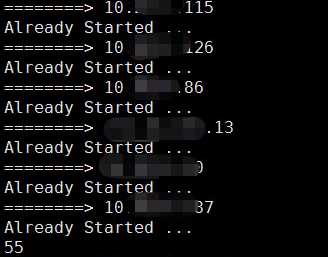#!/usr/bin/env python3
# -*- coding: utf-8 -*-
# @Author : Xiong Wen Wei
# @Email : 184859498@qq.com
# @Time : 3/26/2021 19:04
# @Version : 1.0
# @File : enable_esxi_ssh.py
# @Software : PyCharm
import time
from pyVim import connect
import ssl
import atexit
from pyVmomi import vim
from pyVim.connect import SmartConnect, Disconnect, SmartConnectNoSSL
import humanize
from datetime import datetime
def get_obj(content, vimtype):
"""
Return an object by view
"""
container = content.viewManager.CreateContainerView(
content.rootFolder, vimtype, True)
obj = container.view
container.Destroy()
return obj
# Start service
def set_services(host_system):
service_system = host_system.configManager.serviceSystem
# find SSH service
ssh_service = [x for x in service_system.serviceInfo.service if x.key == 'TSM-SSH'][0]
if not ssh_service.running:
print('Starting SSH ...')
service_system.Start(ssh_service.key)
# start and shutdown with host,default is off
service_system.UpdateServicePolicy(id=ssh_service.key, policy='on')
print('successfully...')
else:
print('Already Started ...')
return ssh_service
if __name__ == '__main__':
s = ssl.SSLContext(ssl.PROTOCOL_TLSv1)
s.verify_mode = ssl.CERT_NONE
s = ssl._create_unverified_context()
si = SmartConnect(
host="vCenter Serve IP地址",
user="administrator@vsphere.local",
pwd="密码",
port=443,
sslContext=s)
atexit.register(Disconnect, si)
content = si.RetrieveContent()
esxi_num = 0
host_system_list = get_obj(content, [vim.HostSystem])
for host_system in host_system_list:
if host_system.name == '192.168.100.178':
continue
print('========> {}'.format(host_system.name))
set_services(host_system)
esxi_num += 1
print(esxi_num)
Python:批量开启vCenter Server中ESXi主机的SSH服务
本作品采用 知识共享署名 4.0 国际许可协议 进行许可


文章评论